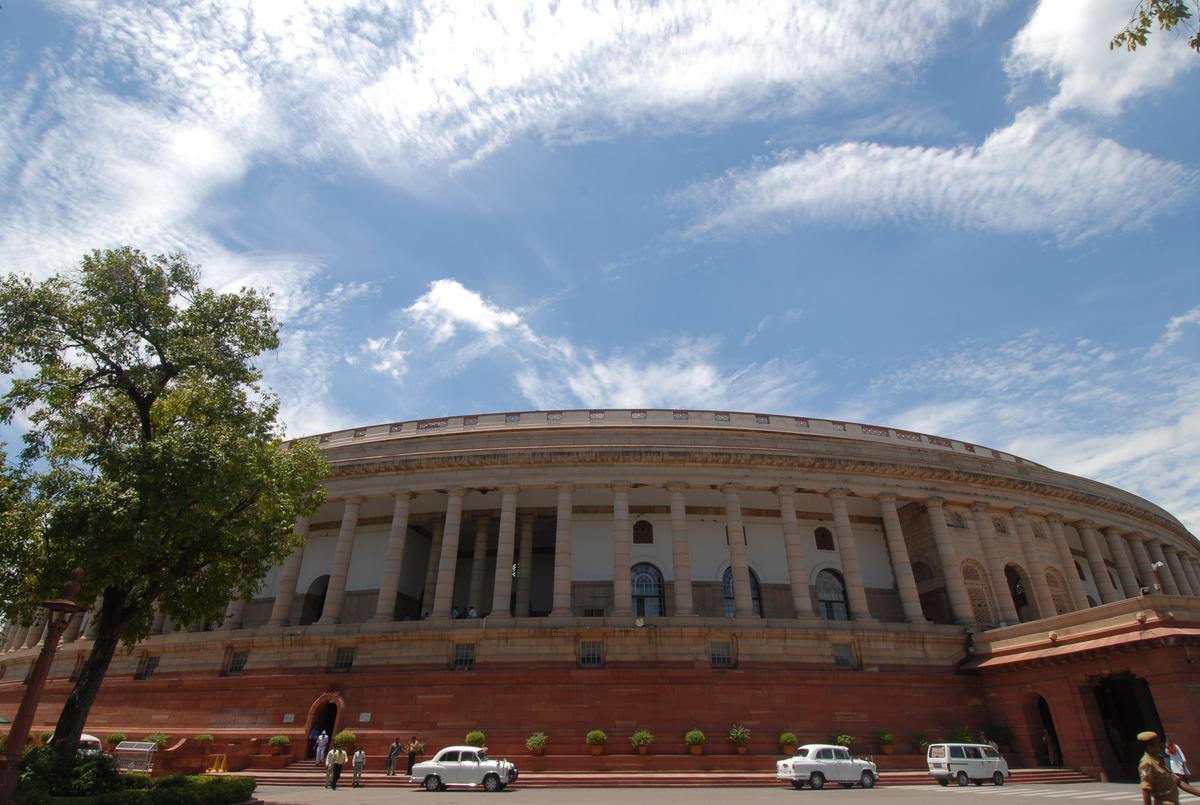Needed an Indian Legislative Service
Context
-
The appointment of Dr. P.P.K. Ramacharyulu as the Secretary-General of the Upper House by the Chairman of the Rajya Sabha that drew much attention. Ramacharyulu was the first-ever Rajya Sabha secretariat staff who rose to become the Secretary-General of the Upper House.
Background
- Since the first Parliament in 1952, 11 Secretaries-General had served in the Rajya Sabha before Ramacharyulu.
- In the first Parliament, the Rajya Sabha opted for the first Secretary (General) S.N. Mukherjee, a civil servant, despite India having a legacy of the Legislative Assembly Department (Secretariat) attached to the Central Legislative Assembly since 1929.

Credit: The Hindu
- In the first Parliament, the Rajya Sabha opted for the first Secretary (General) S.N. Mukherjee, a civil servant, despite India having a legacy of the Legislative Assembly Department (Secretariat) attached to the Central Legislative Assembly since 1929.
- Unlike the Rajya Sabha, the Lok Sabha had nine of its staff (including the lateral-entry officers) raised to become Secretaries-General to date.
- The first Secretary-General of the Lok Sabha, M.N. Kaul (1952-64), was Secretary to the Constituent Assembly Secretariat (1947-50) and the Provisional Parliament (1950-52).
Secretary-General of Rajya Sabha and Lok Sabha
- Article 98 of the Constitution provides the scope of separate secretariats for the two Houses of Parliament. The principle, hence, laid in the Article is that the secretariats should be independent of the executive government.
- The Secretary-General, with the rank equivalent to the Cabinet Secretary, is the third most key functionary of the Rajya Sabha after the Chairman and the Deputy Chairman.
- The Secretary-General also enjoys certain privileges such as freedom from arrest, immunity from criminal proceedings, and any obstruction and breach of their rights would amount to contempt of the House.
- The Secretaries-General of both the Houses are mandated with many parliamentary and administrative responsibilities.
Independent of the executive
- A separate secretariat marks a feature of a functioning parliamentary democracy.
- One of the prerequisites that demand the post of the Secretary-General is unfailing knowledge and vast experience of parliamentary procedures, practices and precedents. Most of the civil servants lack precisely this aspect of expertise.
- Serving civil servants or those who are retired come with long-held baggage and the clout of their past career.
- When civil servants are hired to the post of Secretary-General, this not only dishonours the purpose of ensuring the independence of the Secretariat but also leads to a conflict of interests.
- It breaches the principle of separation of power.
- The officials mandated with exercising one area of power may not expect to exercise the others.
Key Challenges
- A strong Parliament means a more answerable executive. However, the bureaucracy persistently does not allow Parliament to be a competent and robust legislative institution.
- Despite thousands of legislative bodies in India, they lack their own common public recruiting and training agency at the national level.
- Parliament and State legislative secretariats recruit their pool of bureaucrats separately.
- Ensuring competent and robust legislative institutions demands having qualified and well-trained staff in place.
- Growth of modern government and expansion of governmental activities require a matching development and laborious legislative exercise.
Way Forward
- Creating a common all-India service cadre — an Indian Legislative Service — is a must. A common service can build a combined and experienced legislative staff cadre, enabling them to serve from across local bodies to Union Parliament.
- The Rajya Sabha can, under Article 312, pass a resolution to this effect, in national interest, to create an all-India service common to both the Union and the States, and enables Parliament to create such a service by law.
Conclusion
- In the United Kingdom, the Clerk of the House of Commons has always been appointed from the legislative staff pool created to serve Parliament. It is high time that India adapts and adopts such democratic institutional practices.
Reference:
Visit Abhiyan PEDIA (One of the Most Followed / Recommended) for UPSC Revisions: Click Here
IAS Abhiyan is now on Telegram: Click on the Below link to Join our Channels to stay Updated
IAS Abhiyan Official: Click Here to Join
For UPSC Mains Value Edition (Facts, Quotes, Best Practices, Case Studies): Click Here to Join
